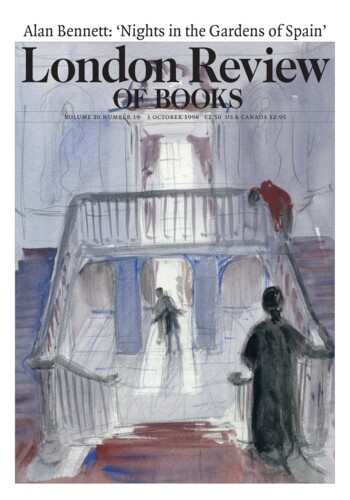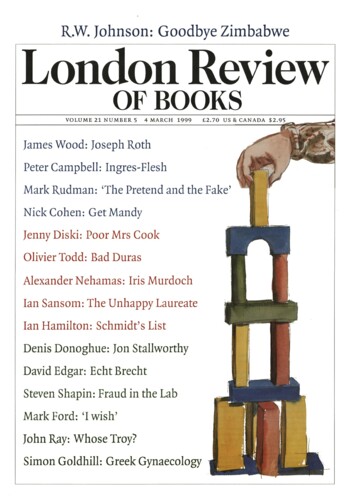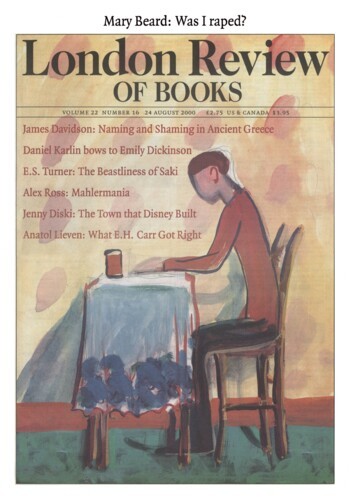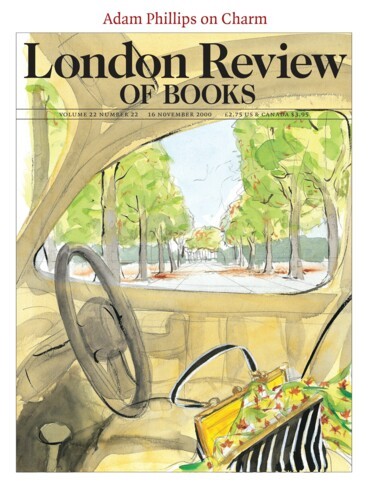‘I was there, I saw it’: Ted Hughes
Ian Sansom, 19 February 1998
Captain Hook, ‘cadaverous and blackavised’, ‘never more sinister than when he is most polite’, lives in fear of the crocodile who ate his arm and swallowed a clock. ‘That crocodile,’ Hook announces in Act II of Peter Pan, ‘would have had me before now, but … before he can reach me I hear the tick and bolt.’ ‘Some day,’ retorts the bespectacled boatswain Smee, ‘the clock will run down, and then he’ll get you.’ In the end, of course, time runs out for the dastardly Hook. Ted Hughes makes use of the story in his poem ‘Tick Tock Tick Tock’, from Remains of Elmet (1979), though with two important differences: the timepiece is now alarmed, and it’s Peter who’s in danger.‘





